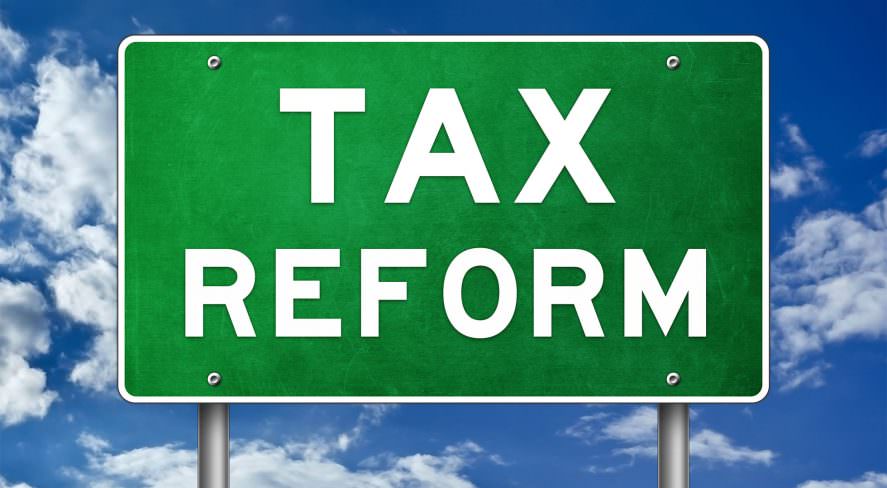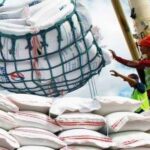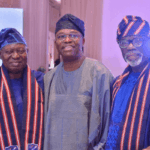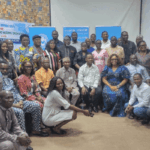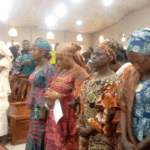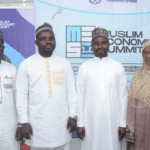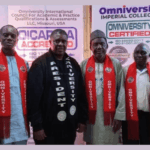Kogi-born political economist and Chief Executive Officer of Vibranium Group, Mahmood Alfa, has called on Nigerians to actively support the upcoming 2026 tax reform law, describing it as an important step towards national development.
Alpha, a former political economy adviser to the World Bank, in a statement issued in Abuja on Friday urged citizens to view taxation as a civic duty essential for development, but also accused government officials of “living a life that will not prove the doubters and critics of President Bola Ahmed Tinubu's tax reform right.”
“Under the government of President Bola Ahmed Tinubu, Nigeria has been governed with bold and necessary economic reforms that are gradually improving the well-being of citizens,” Alfa said. “Yet, some people still doubt whether the Renewed Hope agenda is genuine.”
The economist argued that Nigeria, despite suffering from multiple taxation, is low taxed compared to global standards, especially for small business owners.
He said that although the reforms promise to address this challenge, shortcomings in implementation remain, placing excessive burden on many traders.
With the new tax law expected to take effect on January 1, 2026, Alfa acknowledged the growing apprehension among Nigerians, but stressed that taxation remains the backbone of national advancement.
He said, “The credit for the progress of advanced nations goes to the taxes collected from the citizens.”
“In Nigeria, however, distrust remains a major obstacle. The government is heavily dependent on debt, while citizens avoid taxes because they do not trust the government to use their money responsibly.”
He lamented that tax evasion has become normalized in Nigeria, with little or no accountability for perpetrators.
“In this country, people proudly avoid paying tax, and some are punished for it. This shows that we are taxed less than economies like Britain or Spain.
“But for Nigeria to truly progress, both the government and the citizens must change their mindset, the government must be transparent, and the citizens must fulfill their civic duties.”
Alfa described the relationship between citizens and the government as a “chicken and egg situation”, arguing that corruption and distrust reinforce each other.
He said, “Refusal to pay taxes is a crime; evasion of taxes collected is also a crime.”
“The citizen who evades taxes and the official who loots public funds are two sides of the same coin. Unless both attitudes change, Nigeria will remain trapped in a cycle of mistrust and underdevelopment.”
He acknowledged that some Nigerians fear the digital tax system will make them victims of unfair fees and surveillance, with some even threatening to revert to cash-only transactions.
Nevertheless, he said tax reform cannot be compromised if Nigeria must reduce its dependence on debt and fund critical sectors.
Alfa commended Taiwo Oyedele, chairman of the Presidential Committee on Fiscal Policy and Tax Reforms, for leading an “honest dialogue” with citizens about the intent of the reforms.
“Oyedele has done a good job of engaging the public and explaining that the purpose of this reform is to improve the financial health of Nigeria, not to enrich government officials,” he said.
Also read: Tinubu's 15% fuel import duty to boost local refineries, create jobs – Coran
“But the government must continue to manage perception effectively, citizens must see sincerity in words and actions.”
According to Alfa, restoring public trust is the most important factor that will determine whether reform is successful.
He said, “Government officials must lead by example, live with humility, use public resources judiciously and show that taxes are being channeled into visible public goods: better roads, electricity, healthcare, education, jobs and security.”
He concludes that taxation, appropriately managed, is one of the strongest tools for building a sustainable economy.
“The Nigerian government should step up its tax campaign as is done in advanced countries, but officials should also embrace the fact that public funds are sacrosanct.
“Only then will citizens trust the process and voluntarily contribute to national development,” Alfa said.

